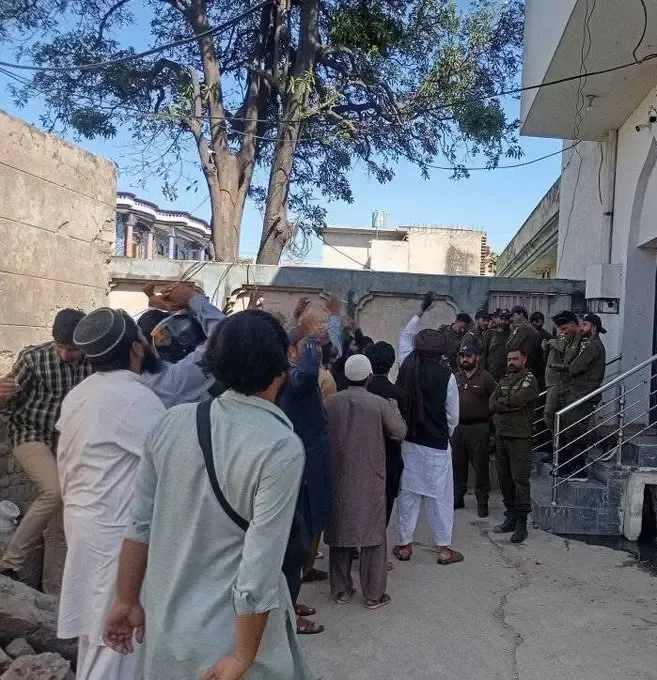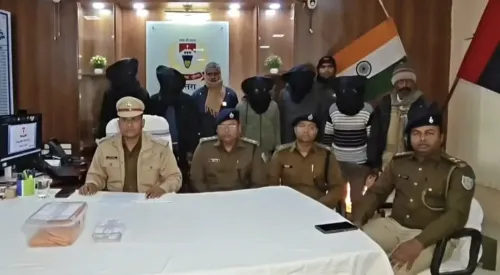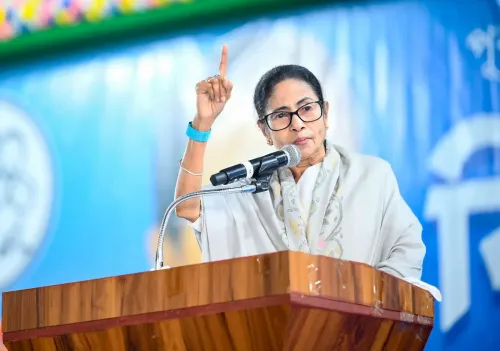Is Religious Intolerance Escalating in Pakistan as an Ahmadi Woman is Denied Burial Rights?

Synopsis
Key Takeaways
- This incident highlights the severe religious intolerance faced by the Ahmadi community in Pakistan.
- The role of the Tehreek-e-Labbaik Pakistan in obstructing burial rights indicates a worrying trend.
- Local authorities' inaction is contributing to the ongoing persecution of minorities.
- This situation is part of a larger pattern of discrimination against religious minorities.
- Immediate action is required to protect minority rights and ensure religious freedom.
Islamabad, Sep 25 (NationPress) A prominent group advocating for minority rights has brought attention to the escalating religious intolerance in Pakistan. This concern was raised following an incident in which a member of the Ahmadi community, a woman named Qudsia Tabassum, was denied burial by extremist factions within society, namely the radical Islamist group Tehreek-e-Labbaik Pakistan (TLP), with the complicity of local authorities.
The Voice of Pakistan Minority (VOPM) reported that Qudsia's body has remained in a mortuary for two days, showcasing the long-standing religious discrimination and violence that the Ahmadi community has faced. This denial extends even to the most fundamental right of burying their deceased.
Babar, a representative from the Ahmadi community, noted that the graveyard in Piru Chak, located in Punjab province, has historically served as a burial site for many Ahmadis, with over 200 graves present. However, recent attempts to conduct a burial were met with fierce resistance from TLP extremists, who have become increasingly assertive.
According to VOPM, local officials, including the Assistant Commissioner and District Commissioner, have not only ignored the plight but have also aligned themselves with hardline factions. Babar conveyed that when the community seeks help, they are often told to 'let it go.'
The rights organization emphasized that this incident is not an anomaly, but rather part of the larger struggle faced by Ahmadis in Pakistan.
The government and law enforcement agencies are failing to safeguard the rights of all citizens, effectively enabling religious extremists to target minorities. The involvement of the TLP in such obstructions is indicative of how far Pakistan has strayed from its foundational principles of religious freedom and tolerance. The failure of authorities to counteract these extremists only strengthens their resolve, sending a troubling message that religious minorities are expendable.
In Pakistan, the rights of minorities—especially the Ahmadi community—are being systematically violated by extremist organizations like the TLP, with tacit approval from the state. This is more than just a matter of burial rights; it serves as a glaring reminder of the escalating intolerance and persecution that religious minorities endure in Pakistan. It is imperative for authorities to take decisive action to uphold religious freedom and human dignity, and to combat the rising extremism threatening to engulf the nation.










